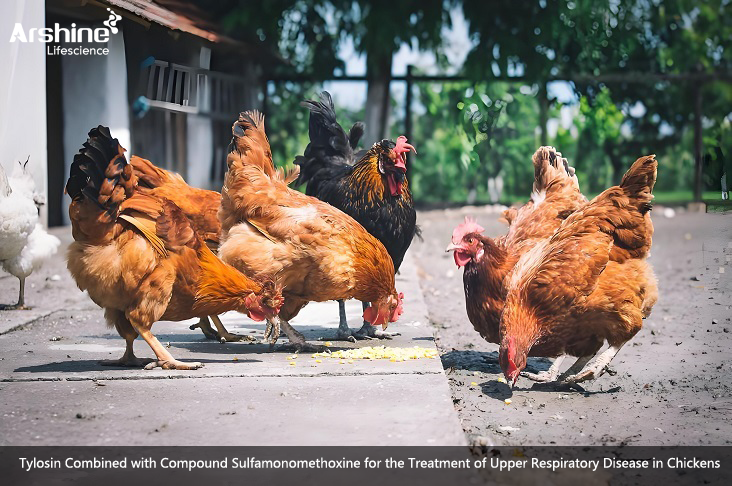

Tylosin is a macrolide antibiotic specifically used in animals for antibacterial and anti-mycoplasma purposes. Its active pharmaceutical ingredient is "Tylosin Tartrate." This substance appears as a white or light yellow powder, easily soluble in water, and has good intestinal absorption when administered orally. Due to its strong lipophilic properties, it diffuses quickly within the body, achieves high blood concentrations, and is commonly used in veterinary medicine to treat respiratory diseases.
The clinical application of Tylosin Tartrate is effective against a broad spectrum of pathogenic organisms, including mycoplasma, Staphylococcus aureus, Corynebacterium pyogenes, Streptococcus pneumoniae, Erysipelothrix rhusiopathiae, Haemophilus parasuis, Neisseria meningitidis, Pasteurella, spirochetes, and certain anaerobic bacteria. In poultry clinical treatments, it is primarily used in combination therapies to treat chronic respiratory disease, infectious coryza in chickens, swine enzootic pneumonia, atrophic rhinitis, swine erysipelas, mycoplasma arthritis, and other diseases.
The compound sulfadimethoxine, a combination of sulfadimethoxine and the potentiator "TMP," is a slow-acting, broad-spectrum bacteriostatic agent. It effectively inhibits most Gram-positive and Gram-negative bacteria and also has good clinical efficacy in treating certain protozoal diseases. However, due to the high resistance of bacteria and other pathogens to this drug, when used alone, the treatment is slow, and the therapeutic effect is poor.
Nowadays, "difficult-to-treat coryza," caused by mycoplasma, Haemophilus paragallinarum, and other pathogens in poultry farming, has become a challenging issue for poultry farmers. One of the main reasons is that many drugs are unable to cross the blood-brain barrier, making it difficult for treatment to reach the infection site in the upper respiratory tract. Even if some drugs do manage to cross the barrier, they are quickly metabolized and eliminated from the body, resulting in poor or ineffective treatment outcomes.
Additionally, poultry with coryza outbreaks are often not just infected with Haemophilus paragallinarum; they may also have concurrent infections with respiratory mycoplasma, Pasteurella, Escherichia coli, and other pathogens. This is one reason why single-drug treatments for coryza often fail. In actual poultry clinical practice, it is rare to encounter a single disease caused by a pure infection, which is a fundamental reason for the poor therapeutic effect of many treatments.
This issue is not due to "insensitivity or strong drug resistance," as some falsely claim, because if the pathogen were resistant or insensitive, a potentiator could be used, right?
Therefore, for respiratory diseases such as chronic respiratory disease, coryza, and nasal discharge in chickens, the combination of Tylosin Tartrate with compound sulfadimethoxine is recommended. Tylosin not only controls mycoplasma but also works synergistically with the compound sulfadimethoxine to treat possible concurrent or secondary bacterial infections, such as Haemophilus paragallinarum and Pasteurella, in upper respiratory tract infections. Furthermore, the potentiator in the compound sulfadimethoxine enhances the effect of Tylosin.
Add: Block 14, No.100, Luyun Road, Changsha 410205, Hunan, China.
Email: info@arshinevet.com
WeChat: +8618874001228
WhatsApp: +8615697311407
Tel:86-731-82294958